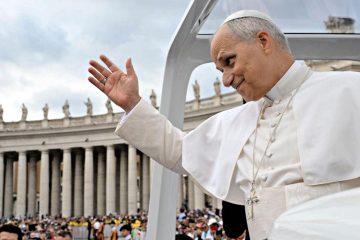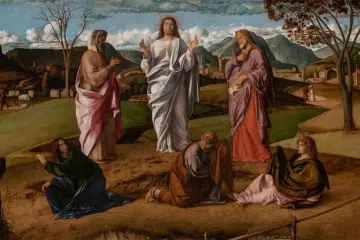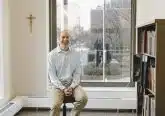The Fulfillment of God’s Promises

Advent is a season of hope. It is the beginning of the liturgical year, and a time for us to reflect on the second coming of our Lord Jesus Christ, as well as the long centuries of yearning by the Israelite people for the Messiah promised by God.
During the Babylonian Exile, the ancient Israelites pondered everything that led to the fall of their holy city, Jerusalem, and the destruction of Solomon’s Temple—God’s dwelling place on earth that had stood for more than four hundred years. They must have felt God abandoned them, perhaps because of the sins of their kings or because of their own personal sins. Many of the psalms and the Book of Lamentations give us a window into their psyche.
They knew God promised to send someone who would save them and restore them to their former glory. They held on to the hope that God would be faithful to His promises and bring them to fulfillment no matter how impossible it seemed at the time. In darkness, they prayed, waited, and longed for God to send someone who would restore everything that was lost.
At this time of year, we place ourselves in the spiritual space of the Israelite people, longing for Jesus in our hearts. We, too, live in exile, knowing that this is not our permanent home and we are pilgrims on a journey. We often find ourselves oppressed by internal and external forces, wondering why God allows events to happen to the point it seems the enemy will be victorious.
While we are blessed and have the advantage to live in the age after Christ walked on the earth, we must still live out our salvation seeing things through a glass darkly (1 Cor 13:12) as we await the coming of our Lord. God’s ways are not our ways, and we are not promised that things will always make sense to us on this side of heaven.
However, we know the end of the story. We know that through Jesus Christ the light conquered the darkness, good, conquered evil. Hence, we do not put our hope in earthly things. In Jesus, the world got so much more than what the Israelites hoped for: the Messiah promised by God was not a political king or a military leader, but a Savior on a much more profound level.
All of God’s promises are fulfilled in Jesus in ways the ancient people could not have comprehended or even dreamed. He is the True Temple, bringing God’s actions and intentions closer to us in a way that we can truly understand—a tangible expression of the Father’s love and mercy. Through His life, death, and Resurrection, Jesus reveals Himself as the Son of God who reconciled us to the Father, fulfilling the promises made to our spiritual ancestors and offering us the path to eternal life. In Him all things are restored—made new—and His kingdom will last forever.
With the help of the Holy Spirit, we can fully believe that sin and death do not have the last word… Christ does. That is our reason for hope. And that is the reason for our Christmas joy.
As you read the stories in this and future editions of The Catholic Telegraph, you will find signs of hope that God is working through the people of the Archdiocese of Cincinnati to build up the Kingdom of God here and now. We pray that He brings the good works of the faithful to fulfillment. And, as we near the end of the Jubilee Year of Hope, I wish you and those you love a blessed Advent and a Merry Christmas.
David Cooley













